Dutch Shepherd
The Dutch Shepherd is a rare, hardworking dog breed originating from the Netherlands. These dogs were used on farms for herding sheep and other livestock, pulling carts, guarding the farm, etc. After years of being all-purpose farm dogs, as the whole world started modernizing, so did the farms, and that development of modern farming techniques made Dutch Shepherds unnecessary.
Because of this and because of World War II (many dogs were taken from farms to service the German military), the breeding of the Dutch Shepherd stopped, and the breed was brought close to extinction. After the war, the breeding started again, but to this day, the Dutch Shepherd is considered a rare dog breed.

Height:
21,6–24,5 in (55–62 cm)

Weight:
42–75 lb (19–34 kg)

Origin:
Netherlands

Life Expectancy:
11-14 years
Dog Breed Characteristics
Females are slightly smaller than males. The Dutch Shepherd’s body is strong, muscular, and fit. Their body structure is similar to the body structure of German and Belgian Shepherds which is not something to be surprised about considering that these three breeds are cousin breeds that share a close ancestry. They are well proportioned, and the length of their body should be slightly longer than they are high.
Even though this breed is somewhat rarer, it is recognized in all major cynology associations and clubs. It has a standard in place that describes these dogs in great detail. The two we will be focusing on are the American Kennel Club (AKC) and the Fédération Cynologique Internationale (FCI) standards.
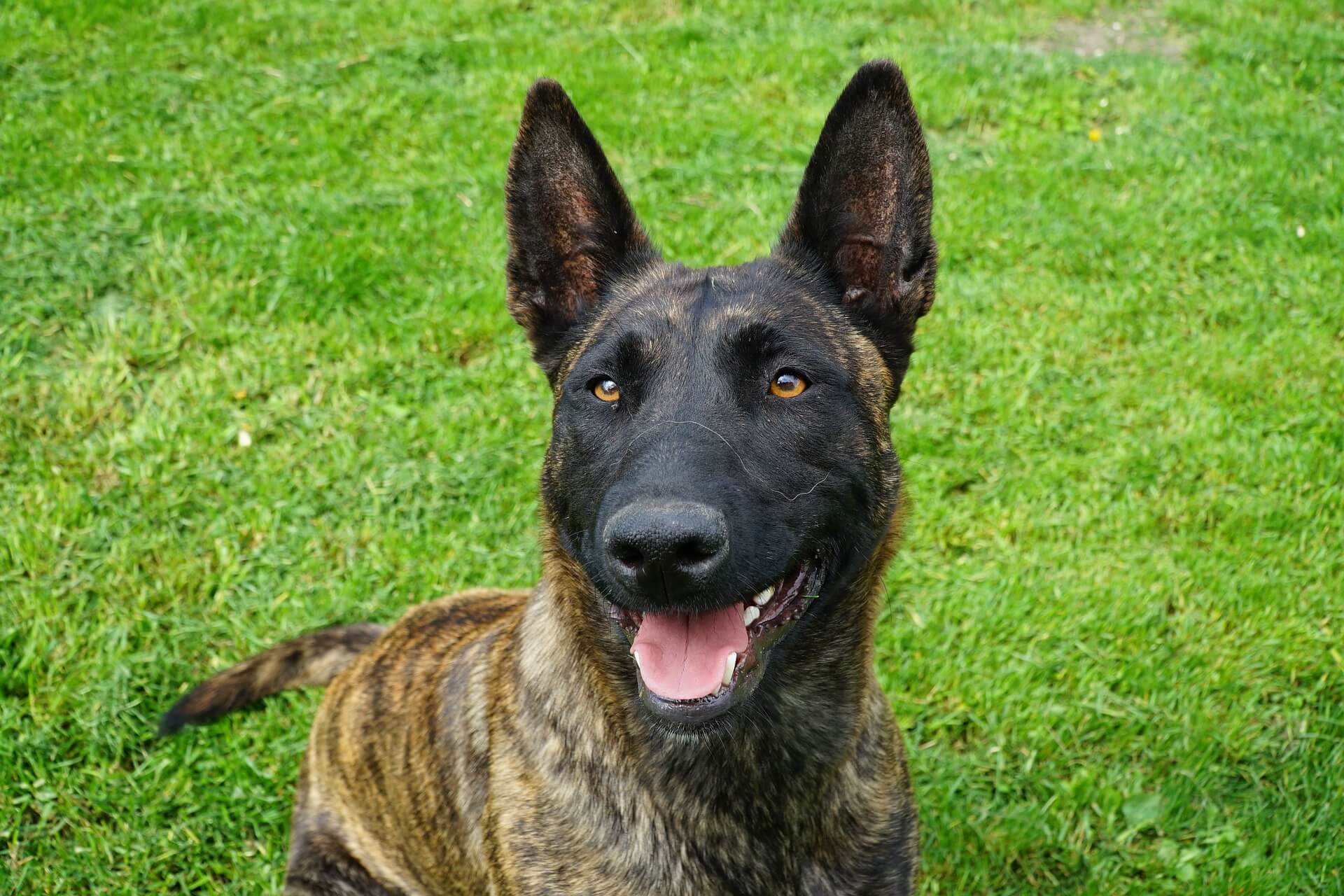
Coat color and shedding
The Dutch Shepherd has a unique coat that comes in a variety of colors (from sandy gold to red chestnut color), but the coloring pattern is always brindle. Dutch Shepherds may have some white markings on them, but those are not desirable in a show ring. This breed has three official varieties that are allowed by the standard, and they are shorthaired, longhaired, and wirehaired.
The Dutch Shepherds can have a short coat with a wooly undercoat, and hair that is close to the body, or can have a long coat that is straight and a bit harsh to the touch. The shorthaired variety is the most common sort for police and military work because it needs less care. There is also a third type of the Dutch Shepherd’s coat – a wire-haired (also called rough hair) Dutch Shepherd.
Grooming
The short and long-haired coat needs regular brushing to remove dead hair and to keep the coat clean and free of mats (daily brushing is required during the seasonal shedding periods). The wire-haired coat requires a little bit more work when it comes to grooming.
Wirehaired Dutch Shepherd has a woolly undercoat and should be groomed a few times a year by a professional groomer, and not brushed at home. All types of coats are water-resistant and do well in both cold and warm climates. Bathing should be done as needed and remember to use dog products that do not contain potentially harmful chemicals.
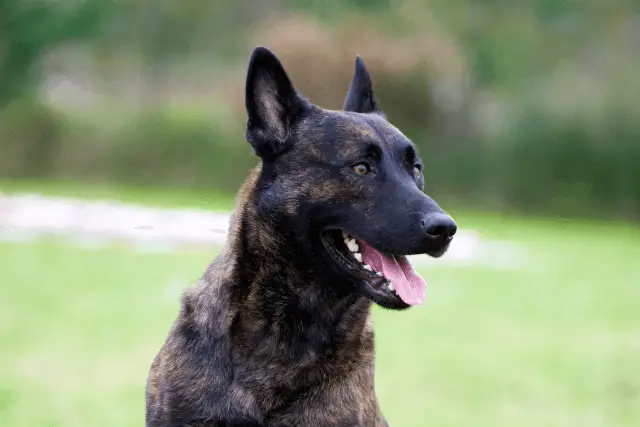
Their nails should be trimmed regularly, and if you can hear their nails clicking on the floor while they walk, that means it is nail trimming time. If you are unsure or are afraid that you might hurt your dog, don’t be afraid to ask a professional groomer for help or advice. Groomers have the necessary tools and knowledge to trim your dog’s nails without causing any harm.
Ears should be checked regularly to prevent and avoid a buildup of wax and debris which can cause an infection.
One important segment of grooming is also cleaning your dog’s teeth. This breed has a longer muzzle, so it could be difficult to reach their back teeth, but you can find specialized dog toothbrushes in your local pet shops. Remember to use toothpaste for dogs that do not contain Xylitol as human toothpaste does.
Energy level
Dutch Shepherds are energetic and athletic dogs that need regular exercise to stay healthy, and happy, and to prevent boredom that usually causes destructive behavior. Originally bred for hard work on farms and later used as a police and military dog, Dutch Shepherds are used to vigorous exercise and can run all day long. They excel in just about any canine sport or activity, including
- agility,
- herding,
- field training,
- police work,
- guide dog duty,
- search and rescue.
They can live in an apartment but should be walked regularly and also have a few play sessions throughout the day. They do great in active families that love to spend their time outside the house.
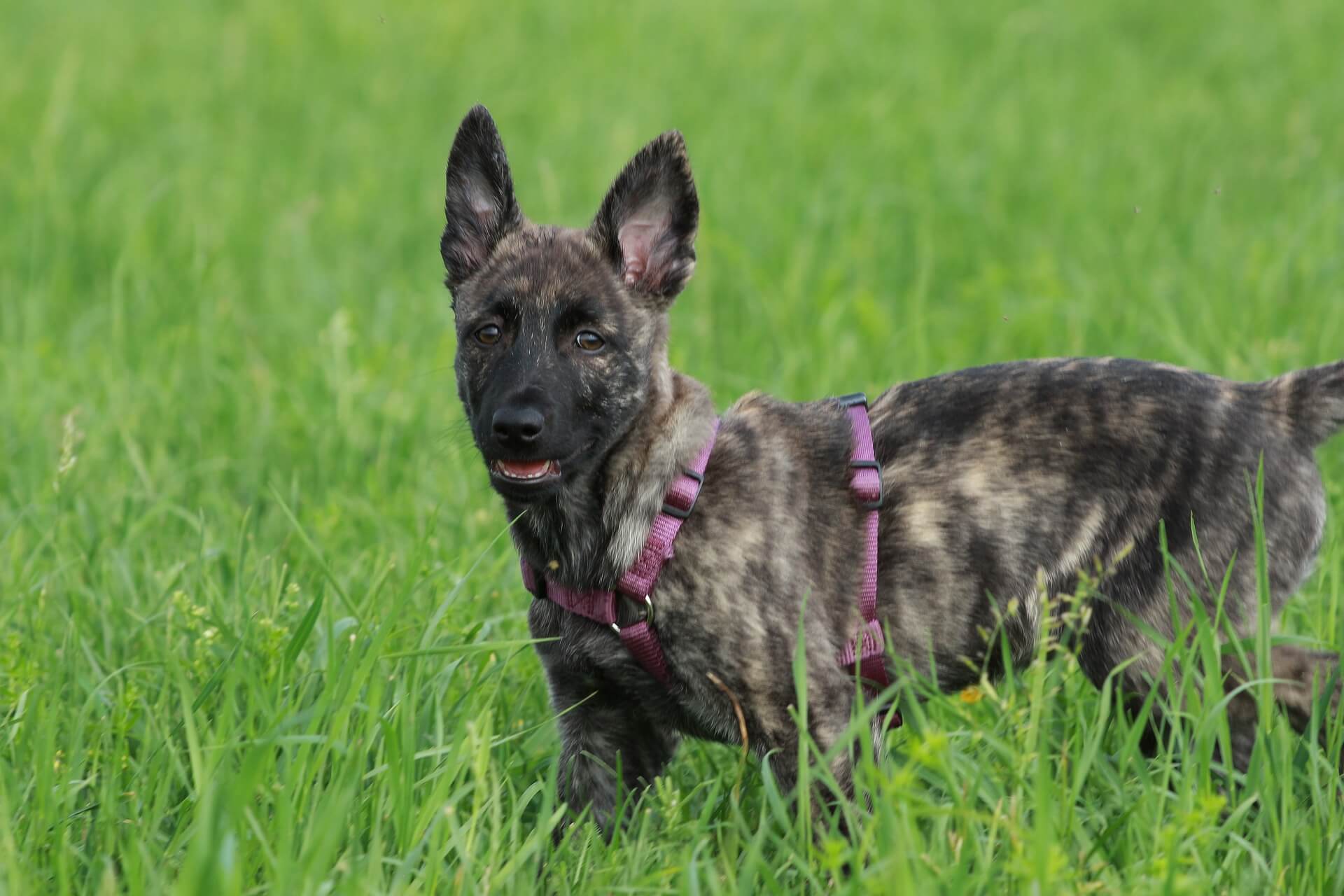
Training
Dutch Shepherds are extremely intelligent dogs. They are highly trainable and eager to please, learning new commands after only a few repetitions. While training a Dutch Shepherd make sure to organize the training in shorter training sessions (with little repetitions). They will become more driven as the work becomes more mentally stimulating.
They can sometimes be strong-willed and independent so the owner has to establish himself as an alpha.
Socialization
As for all breeds, for Dutch Shepherds, early socialization is very important. Socialization will help Dutch Shepherds to stay calm around new people and animals. Start the socialization process as soon as possible and expose your new puppy to different sights, sounds, situations, people, and dogs.
It is very important to socialize your puppy properly because these dogs can be dominant. They are strong and capable of doing great damage and to avoid potential problems and incidents, make sure they are socialized.
If you are unsure of how to start this process, try enrolling your dog in a puppy training school. Puppy schools can be a great resource throughout your dog's life and professionals that work there will be glad to help you with advice.
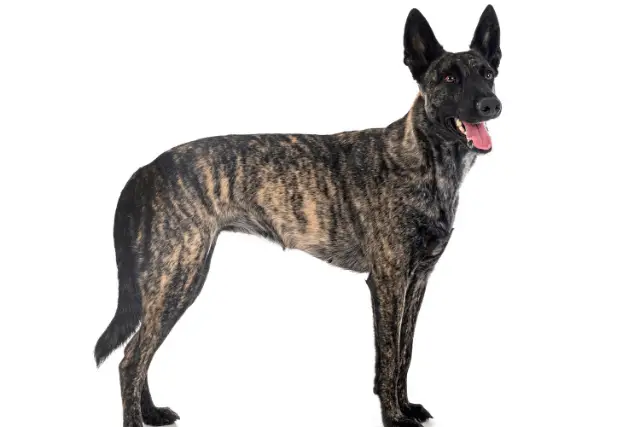
The Dutch Shepherd as a pet
Dutch Shepherds are affectionate and make excellent family dogs and companions. The bond they make with their owners is unbreakable. Their natural guarding instinct makes them protective and territorial.
They are great with children and other pets, however, we already mentioned they can develop dominant behavior so it is important to teach your dog to interact properly with strangers and children. They are highly energetic and make a great playing partner for toddlers. They are capable of playing for hours and not getting tired.
Make sure you teach your children how to properly approach and handle the dog and never leave them unattended. This is a large and powerful breed, and it can unintentionally hurt a child while playing.
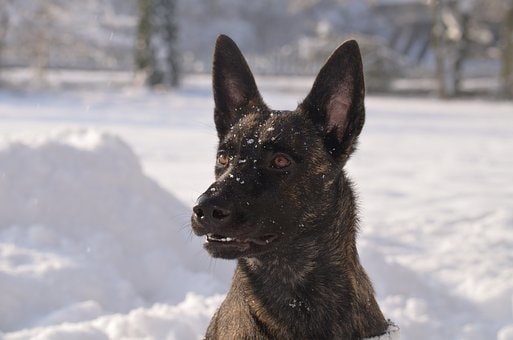
Health problems
Dutch Shepherds are one of the healthiest breeds. They have an average lifespan of 11 to 14 years, and there are just a few health issues that Dutch Shepherds are prone to. Those health issues are
- hip dysplasia,
- goniodysplasia (a condition where eye fluids don’t flow properly and can lead to blindness; more often seen in wire-haired Dutch Shepherds), a
- inflammatory myopathy (a progressive disease that involves the rapid degeneration of muscles).
There are some health tests your dog can take so you can be sure of their health and those are ophthalmological evaluation and hip evaluation.
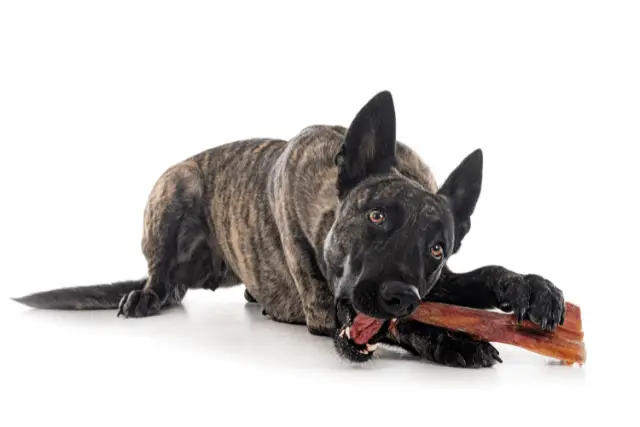
Dutch Shepherd breeders
Before searching for a breeder, try and make an informed decision and try to evaluate if this dog breed is a great fit for you and your lifestyle. These dogs are energetic, focused, demanding, and powerful. They are great working dogs, but that also means that they need plenty of activities in a day. You have to invest time, energy, and money to keep yourself and your dog happy.
If you still think this breed is a good choice for you and your family, start looking for a registered and reputable Dutch Shepherd breeder. Registered breeders should have all the necessary documents and licenses for breeding. They should answer all your questions with no problem and should present you with health checks for your new puppy as well as your puppy’s parents.
If you are unsure which puppy you should pick, ask the breeder for a recommendation. They have been with at least one of the puppy’s parents and are with their puppies from birth, so they should know their character and which one will suit you the best.
As said before, Dutch Shepherd is a rare dog breed, and as such, these dogs are harder to find and more expensive. A Dutch Shepherd puppy can cost from $1,000 to $1,500.
World Dog Finder team

Updated at31.08.2023.
Breed History
The Dutch Shepherd was “discovered” living in the region of modern Netherlands and was a shepherd working dog breed. They were widespread and were quite common in that area. They were extremely good at guarding and herding large flocks of sheep but they were also pretty good in other tasks. Some of the main tasks these dogs were given were keeping the garden safe from chickens, watching and guarding dogs, and they helped their farmers by pulling heavy loads.
The original Dutch Shepherds were very similar to their German and Belgian cousins and they were mostly distinguished by their color. The selective breeding through the last 100 years diverged these breeds a bit more.
As all-around working farm dogs, this breed was threatened by industrialization in farm work and slowly machines completely took over these dogs’ work. Like many other breeds, this one was also on the brink of extinction because of the Second World War. Dog breeding nearly stopped completely in the Netherlands and those dogs that remained were starved to death or taken by German officers to serve as German military dogs.
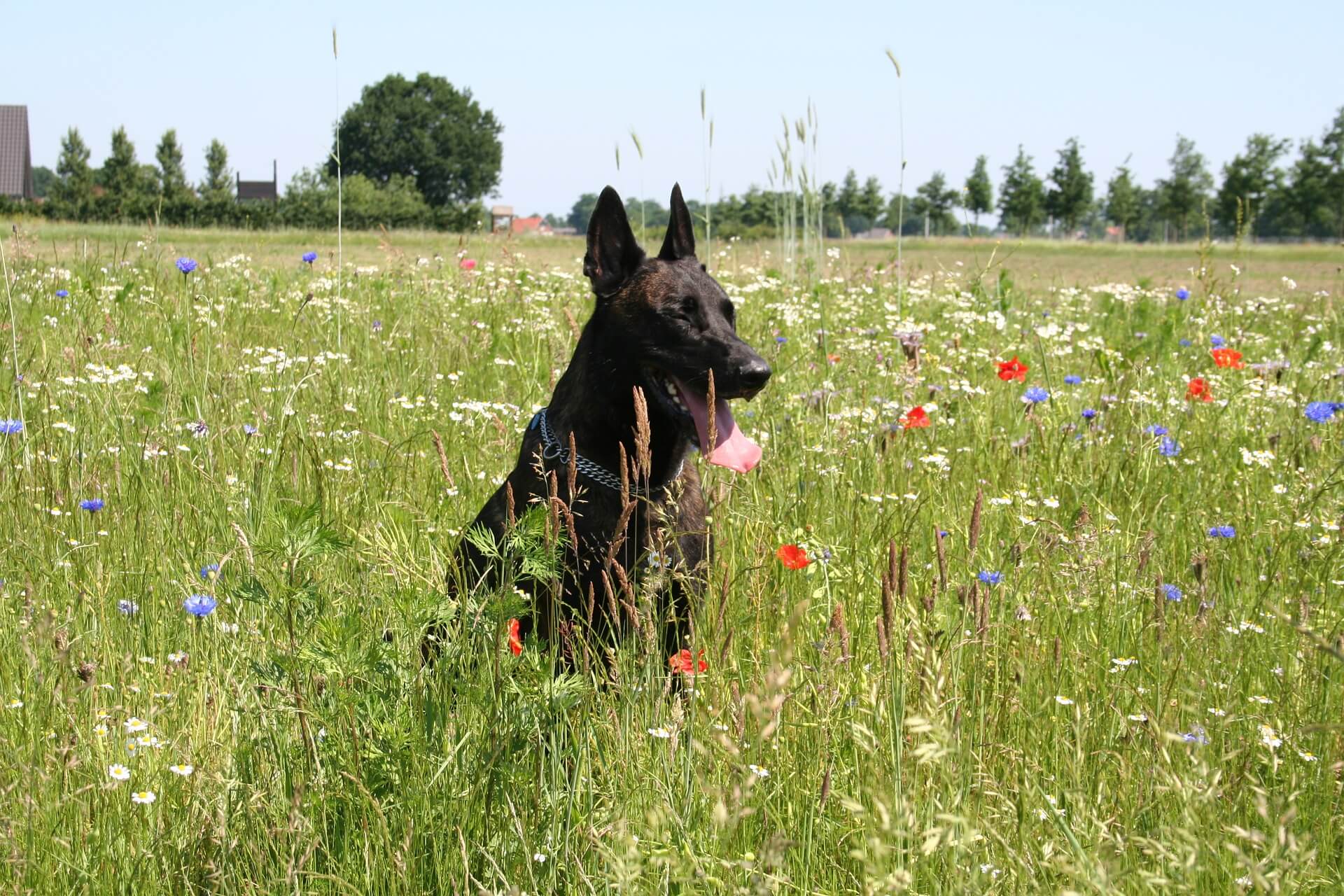
After the war, Dutch breeders wanted to bring back these dogs and made an effort in preserving what was left of this decimated breed. To save the Dutch Shepherd, breeders decided to introduce other dog breeds to widen the gene pool. They have managed to save the breed and they even preserved their characteristics as great shepherds and herding dogs.
These days this breed remains rare but it is a widely praised working dog breed. The Dutch Shepherd is used by law enforcement and militaries around the world for its great trainability and blind devotion. They also achieve great results in dog sports such as obedience, agility, herding, or flyball.
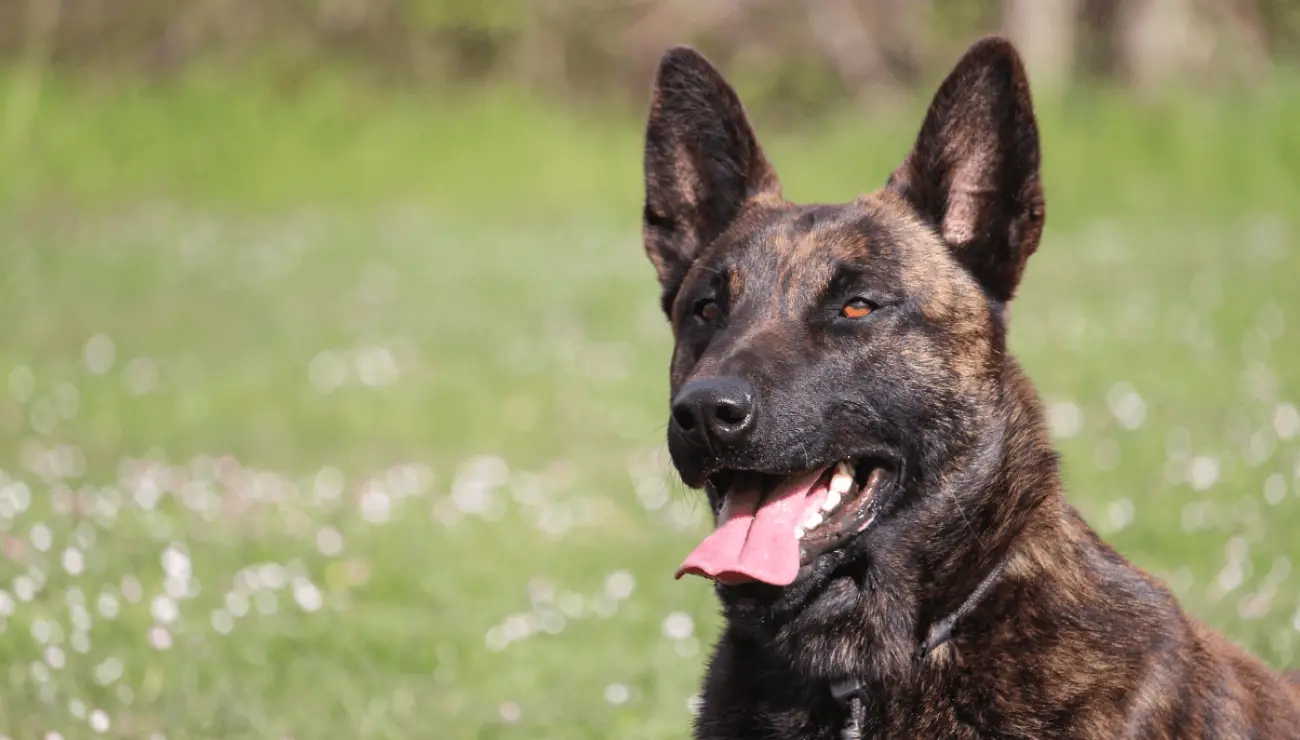
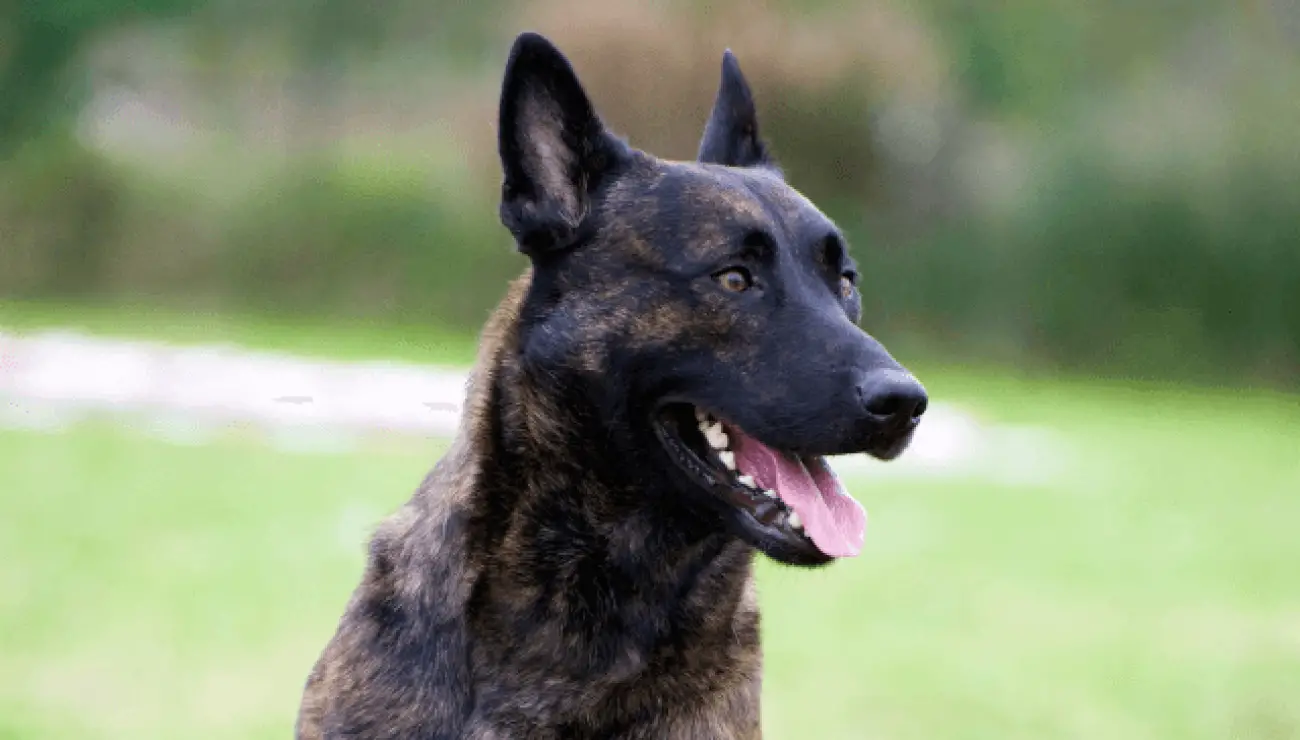
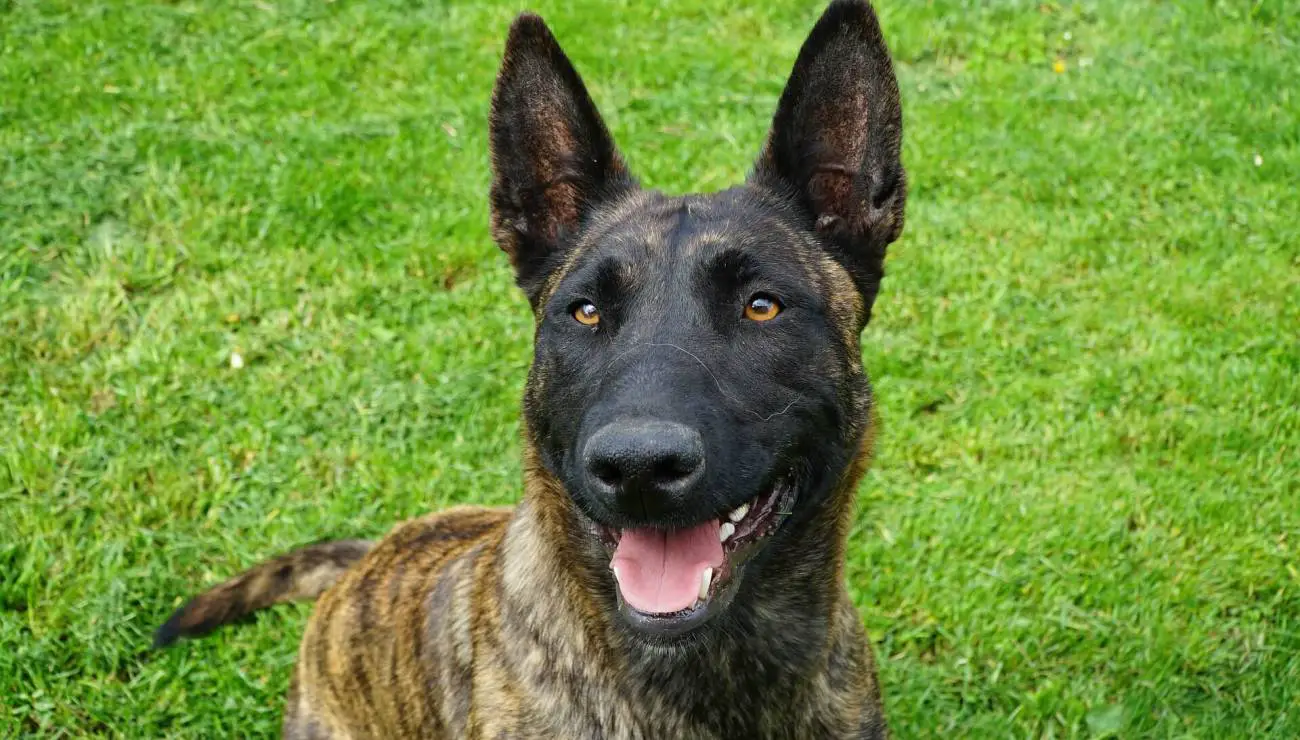
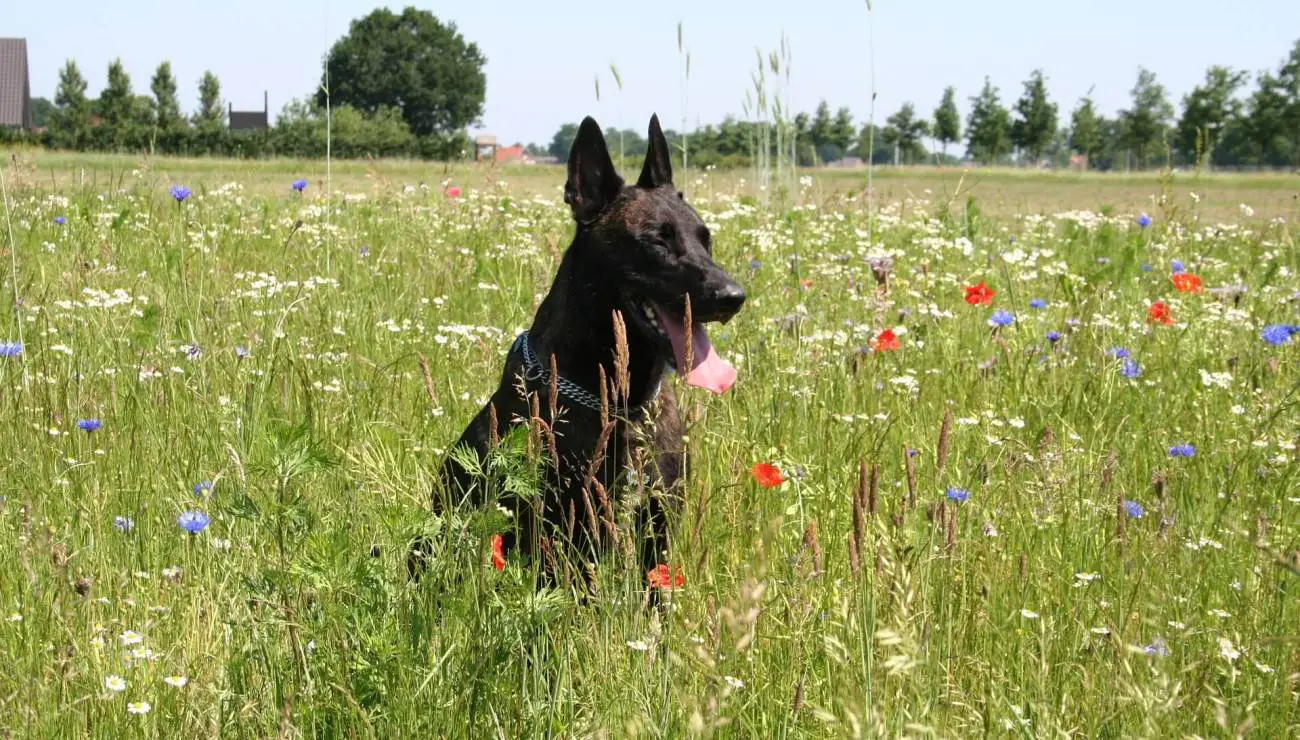
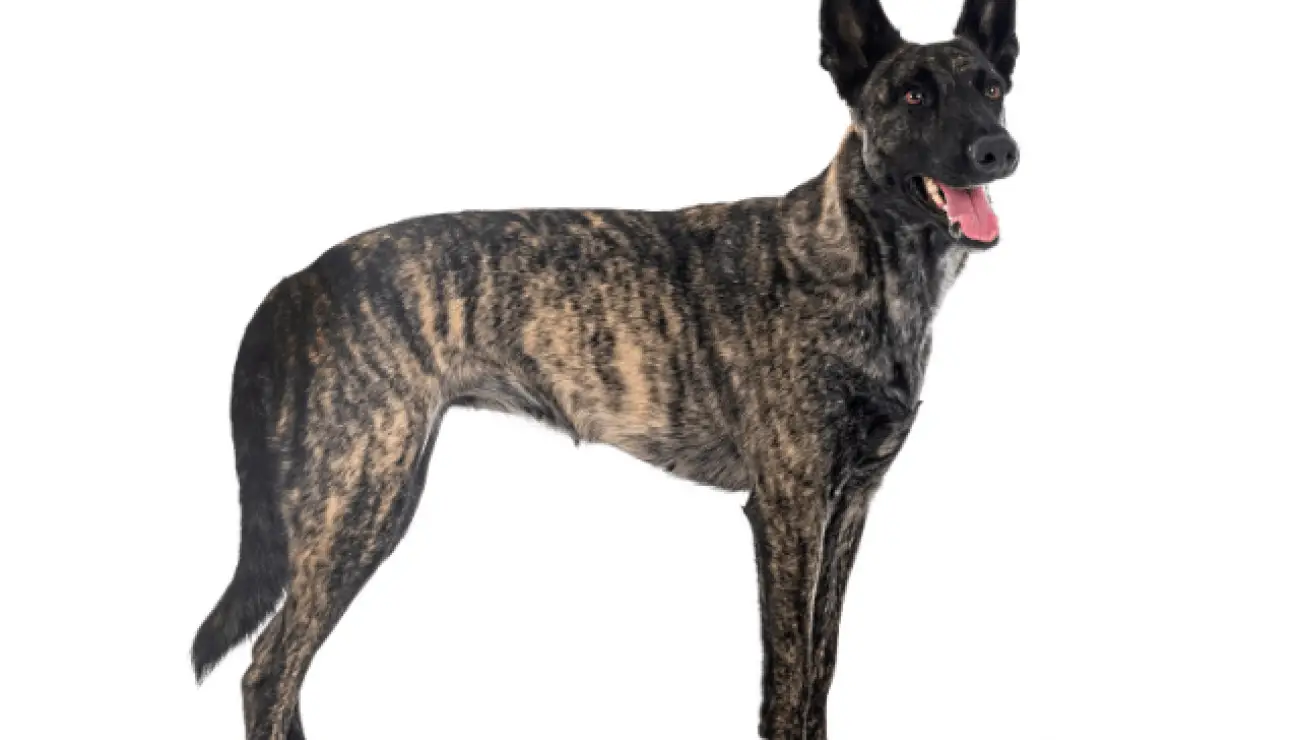
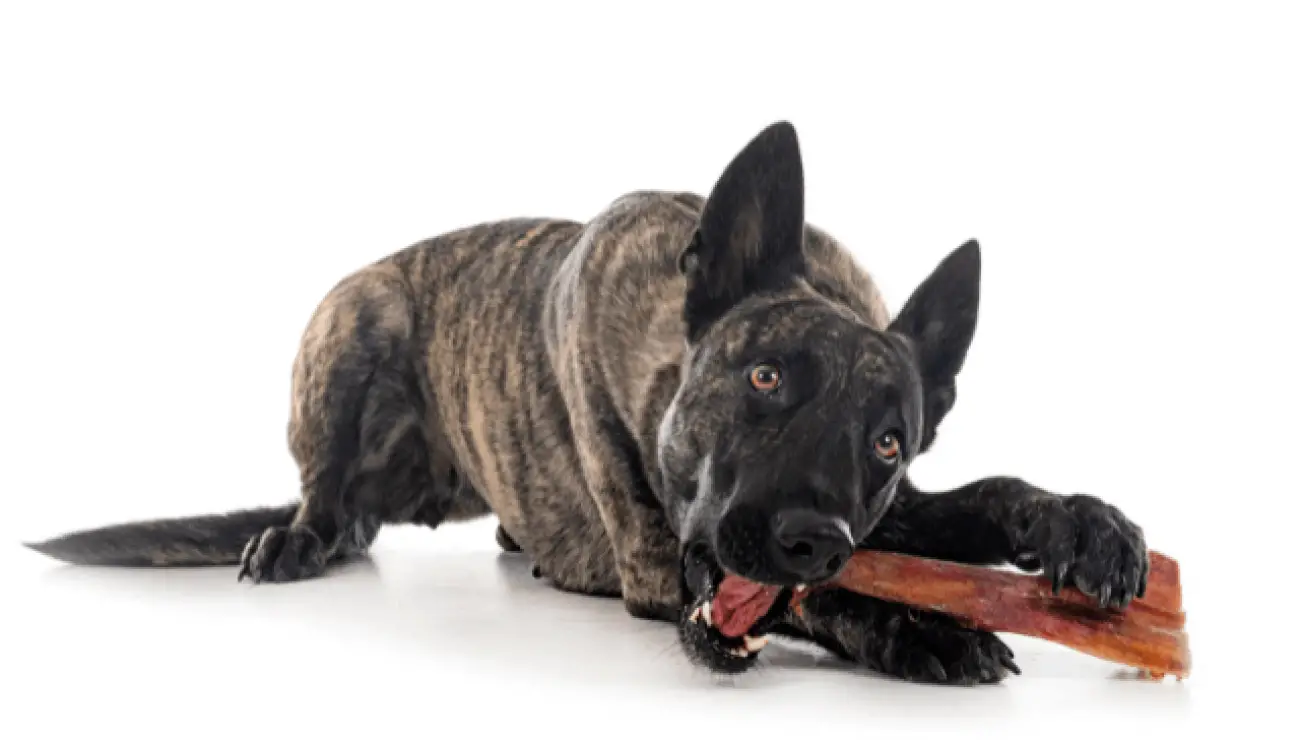

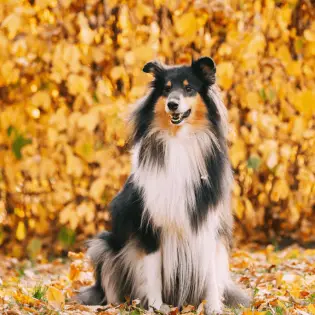
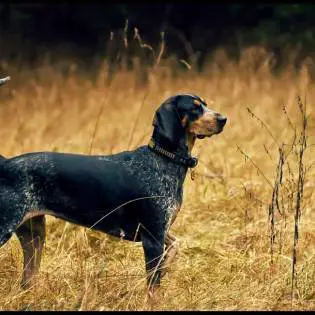


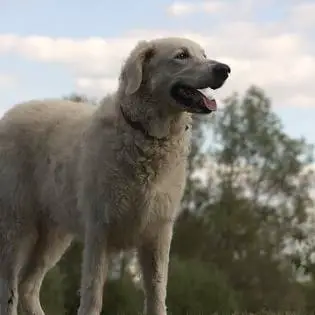

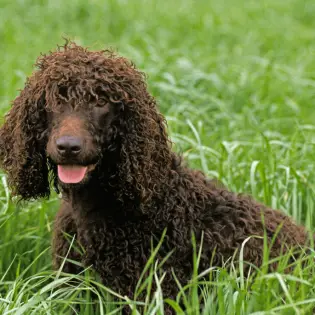

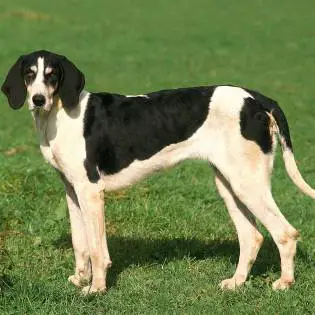

Share